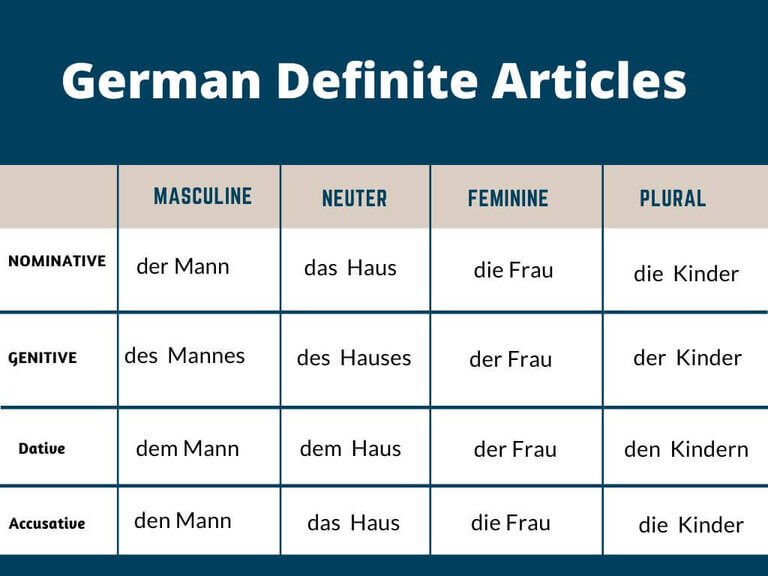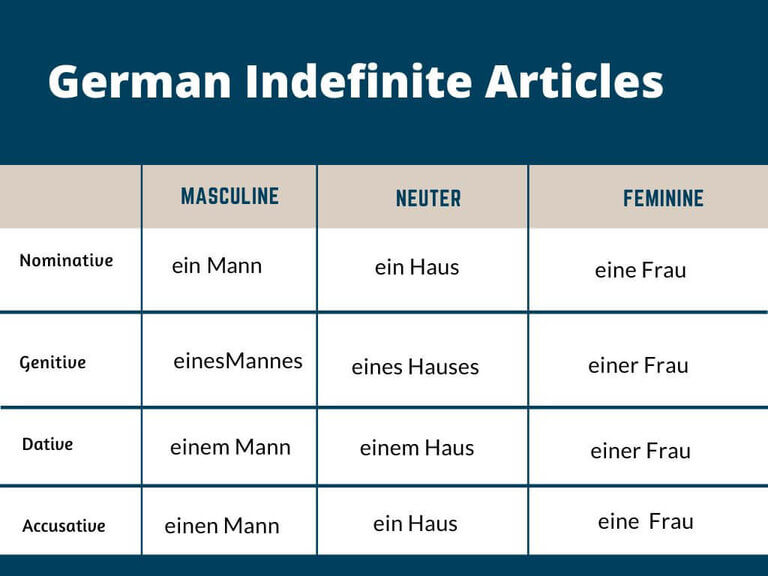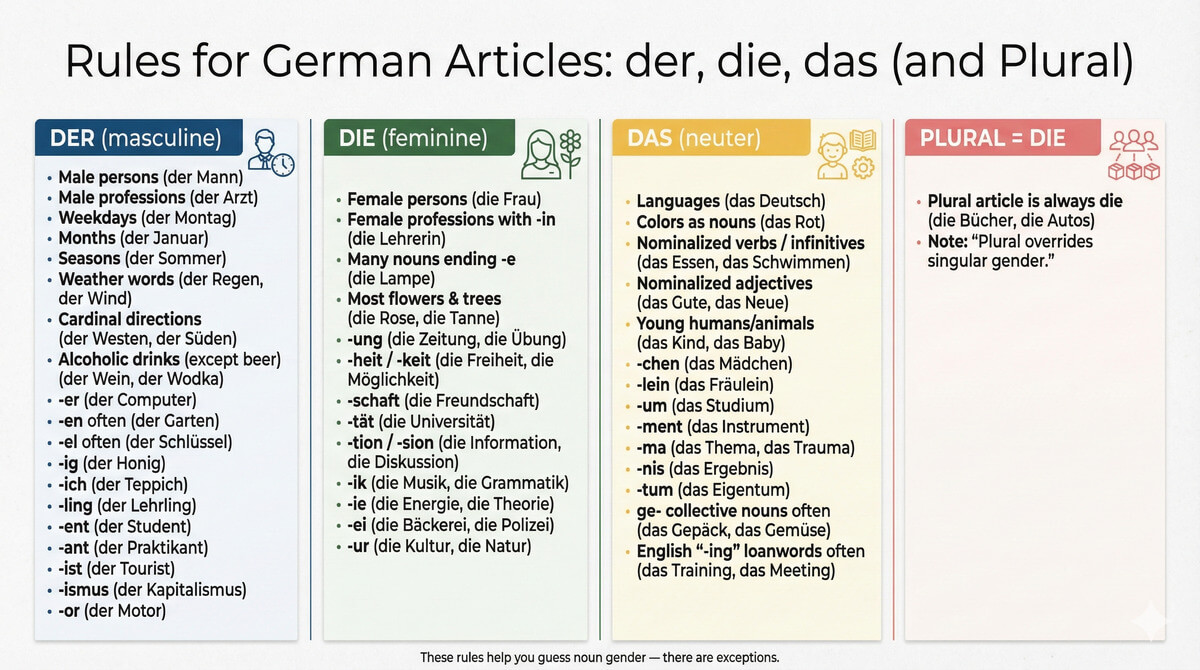Table of Contents
Introduction: How to Master Der, Die and Das
German articles are often the biggest hurdle for learners. Unlike English, where you only have “the,” German requires you to choose between three genders:- der (masculine)
- die (feminine and plural)
- das (neuter)
Key Takeaways
- Never learn a noun alone. Always treat the article and the noun as one single word.
- Use rules as a guide, but don’t rely on them 100%. Patterns like months (der) or endings like -ung (die) are helpful shortcuts.
- Statistically, die is your best guess, making up about 46% of all German nouns.
- Interactive practice is faster than reading charts. Use tools that force you to decide quickly.
Wort 1 von 20
Lade…
Runde beendet!
0%
Auswertung läuft…
Deine Lern-Liste:
Master der, die, das with the Premium Tool
(Learn the rules with 600+ essential nouns)
What are Articles in German?
Articles are small words that appear before nouns. They tell you the noun’s gender (masculine, feminine, or neuter) and help indicate grammatical case. The three basic definite articles in German are:Examples:
- der (masculine),
- die (feminine, plural), and
- das (neuter).
- Der Mann (the man) is masculine and always uses der.
- Das Haus (the house) is neuter and uses das.
- Die Frau (the woman) is feminine and uses die.
Why are Articles in German Important?
Articles are key because they connect with cases, adjective declension, and even sentence structure. A single change in article can shift meaning, so understanding them is vital for clarity. German has four cases (nominative, genitive, dative, accusative). Each article changes form depending on the case. By mastering articles, you also gain insight into how words interact in a sentence.What Makes German Articles so Hard?
German nouns have three genders, and there is no quick rule to decide which article goes with each noun. Moreover, articles change based on case, further complicating matters. Even many native speakers cannot explain the rules because they learned nouns and articles together from childhood.Definite and Indefinite Articles in German
German uses definite articles (der, die, das) for specific nouns and indefinite articles (ein, eine) for unspecific nouns:- Der Junge geht in die Schule. (The boy goes to school.)
- Ein Junge geht in die Schule. (A boy goes to school.)
German Definite Articles Chart

Example Sentences with Definite Articles
| German | English |
|---|---|
| Der Hund schläft im Garten. | The dog sleeps in the garden. |
| Die Frau liest ein Buch. | The woman is reading a book. |
| Das Kind spielt im Park. | The child is playing in the park. |
German Indefinite Articles Chart

Example Sentences with Indefinite Articles
| German | English |
|---|---|
| Ein Mann wartet an der Haltestelle. | A man waits at the bus stop. |
| Eine Frau trinkt Kaffee. | A woman drinks coffee. |
| Ein Kind lacht laut. | A child laughs loudly. |
Rules of the German Articles
 Certain endings or categories often indicate masculine, feminine, or neuter. For instance:
Certain endings or categories often indicate masculine, feminine, or neuter. For instance:
- Masculine: words for male persons, days, months, seasons, many nouns ending in -er, -ent, -ich, -ig.
- Feminine: words for female persons, nouns ending in -ung, -schaft, -ion, -heit, -tät, or -keit.
- Neuter: nouns ending in -chen, -lein, -um, -ment, or categories like colors and languages.
Frequency of the German Articles

German Articles Quiz
Quizzes are an excellent way to reinforce what you’ve learned. For example, we offer multiple grammar quizzes on German articles on our website, including these ones:How Can You Learn German Articles More Easily?
Mastering articles requires a shift in how you learn vocabulary. Instead of seeing a noun as a single unit, always learn the noun, article, and plural together as one package. This prevents you from having to “guess” later on. To speed up this process, we developed the Premium Article Trainer. It allows you to practice over 600 essential German nouns organized by specific rules and endings. By repeating these patterns in a gamified environment, you build the “Sprachgefühl” necessary to pick the right article without thinking. Stay consistent. Spend 5 to 10 minutes every day practicing articles, and you will soon notice that your sentences sound much more natural and correct.Practice Making Questions with Articles
Forming questions is straightforward and a good way to use articles. For example:- Wo ist der Mann? (Where is the man?) – Der Mann ist im Büro.
- Wen siehst du? (Whom do you see?) – Ich sehe die Frau.

